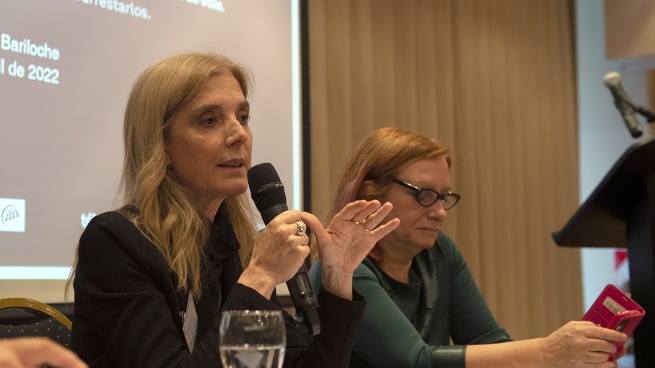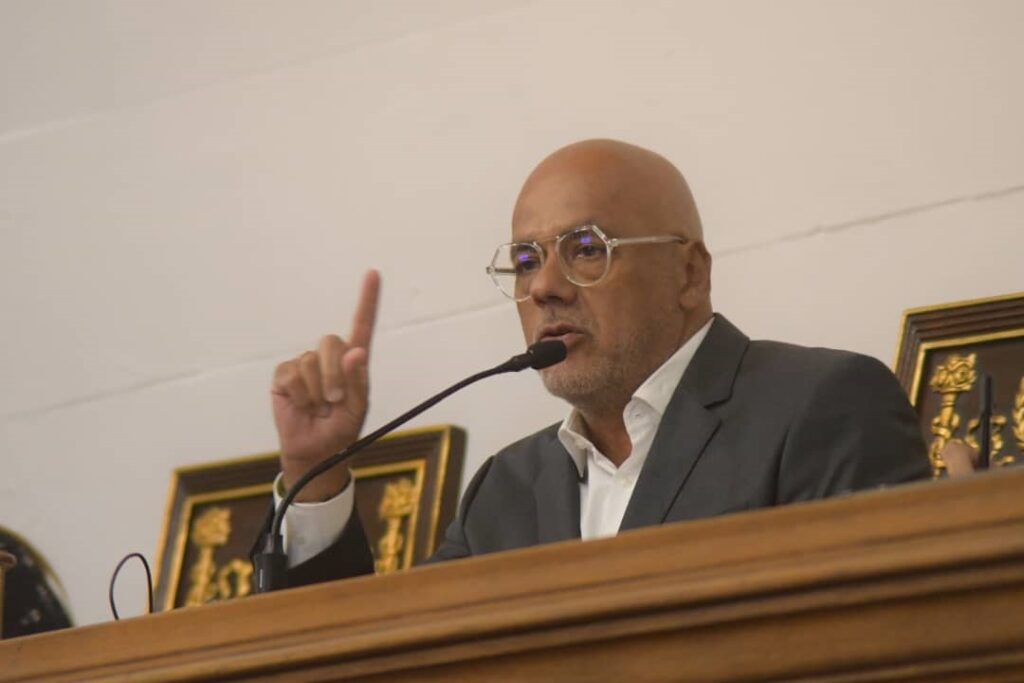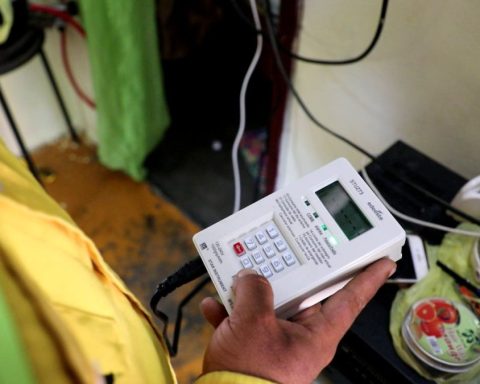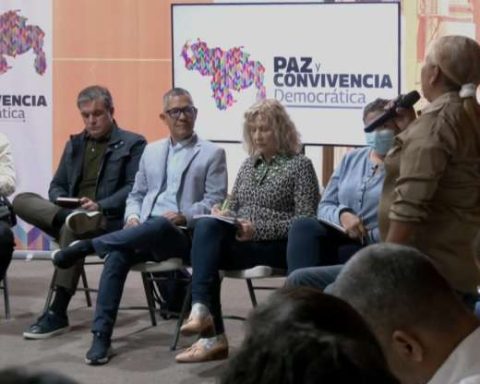The global crisis of 2008 contributed to hate speech moving to the political arena with the emergence of figures such as Donald Trump and Jair Bolsonaro, said the president of the Télam agency, Bernarda Llorenteby participating this Thursday in the first day of the international seminar “Distortion, denial and trivialization of the Holocaust and other genocides”, which takes place in the city of BarilocheBlack river.
Llorente spoke about “Construction of strategies for the moderation of hate speech in traditional and digital media” in a conference that he shared with the head of the Public Defender of Audiovisual Communication Services, Miriam Lewis.
“The media reflect the reality in which they are inserted”raised Llorente, adding that “hate speeches, throughout history, never have the same intensity, but they can be directed at the same subjects,” as he assessed in the framework of an activity organized by the Anne Frank Center Argentina for Latin America (Cafa).
“There is an express intention of certain sectors that say that you have to turn to the right because the world is going that way”Bernarda Llorente
Regarding the amplification of hate speech in recent times, he considered that this phenomenon is “caused by economic crises and global crises”, and in this sense he assured that the year 2008 should be read as a pivotal moment in which this type of messages against social collectives and population groups were transferred to the political sphere.
Thus, he analyzed, “figures like Bolsonaro, Trump or the right in Europe appeared.”

“There is an express intention of certain sectors that say that you have to turn to the right because the world is going that way”he described, and gave as an example the debate this Wednesday between the presidential candidates Marine Le Pen and Emmanuel Macron in France, where Macron opted for a moderate speech.
“Extreme speeches don’t always win”he underlined.
Regarding the advance of certain right-wing policies and neoliberal bias, which in their narratives frequently resort to hate messages, the president of Télam valued as “good news” that these speeches are “temporary”, since -she observed- “they are the product of conjunctures more than of convictions”.
“You have to have courage to act and change communication patterns. We are facing the fantasy that we are all communicators, but not all of us exert the same influence”Bernarda Llorente
In front of an audience made up of journalists and communicators from the region, members of the Mapuche community and representatives of the Justice and officials of the municipality of Bariloche, Llorente proposed changing the vision of what is usually considered a “minority”.

“We talk about hatred towards minorities, but if these minorities were added they would form a majority, while the hatred against them comes from a minority that are the economic, media and political elites“, he warned.
Regarding the responsibility of the media in the dissemination of hate speech, he said that Télam regularly debates what to do with this type of messages, whether to give them space, and whether their reproduction and repetition contribute to naturalizing them.
“You have to have the courage to act and change the patterns of communication. We are facing the fantasy that we are all communicators, but not all of us exert the same influence“, Held.
And regarding the exercise of journalistic activity, he stated that in the face of strategies that stigmatize groups and social collectives, the alternative is to “return to the sources” of the profession.
In that line, He called for “reliable, data journalism, and from there to debate”, and then defined that professional option as “the most appropriate response against hate speech in the media”.

Lewinfor his part, recalled that one of the functions of the Public Defender’s Office is “to promote the responsible exercise of communication, which has become very complex with the Internet, which seemed liberating, and shows a dark side in networks with bots (program that emits messages automatically) and trolls (users who publish false or offensive content under false names), which are threats to freedom of expression”.
“Freedom of expression belongs to everyone, not just those who own a media outlet or work in one. There are communities like the Mapuche, which are demonized or accused of terrorism. They are expelled from the public square, they are makes them invisible and they cannot exercise their freedom of expression”he alerted.
He added: “This form of hate speech is very dangerous.”

As an example, the Public Defender recalled that this treatment frequently appears “in national, regional and local media, where violence against Mapuche communities can be instigated.”
“Hate speech is an appeal to violence in the real world when it discriminates or stigmatizes a vulnerable group, by a political leader or a communicator”Miriam Lewis
That type of speech, he insisted, “is related to stigmatization and accusations that (these minorities) are a terrorist threat, that they come for everything.”
“Hate speech is an appeal to violence in the real world when it discriminates against or stigmatizes a vulnerable group, by a political leader or a communicator,” Lewin said.
Then he listed some stigmatizing prejudices that circulate in Argentina: “They are the expressions of the street, like shitty Jews, or that the gypsies do not have a driver’s license and go out to run over and kill children. With malice, a community is accused of criminal conduct and harmful to the rest of the community,” he reviewed.
“They appeal to emotionality, to an existing prejudice, and that’s why they’re effective. That’s profoundly dangerous,” Lewin concluded.


















